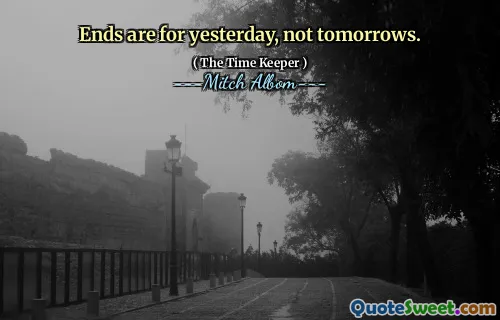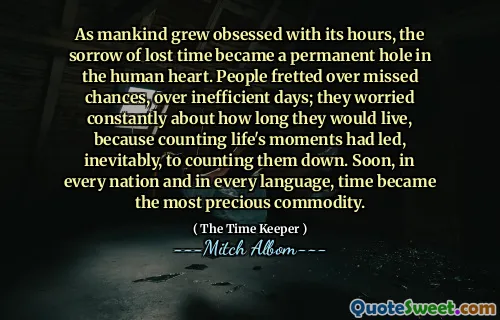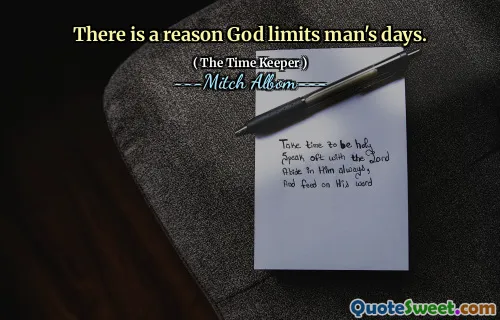
Consider the word time. We use so many phrases with it. Pass time. Waste time. Kill time. Lose time. In good time. About time. Take your time. Save time. A long time. Right on time. Out of time. Mind the time. Be on time. Spare time. Keep time. Stall for time. There are as many expressions with time as there are minutes in a day. But once, there was no word for it at all. Because no one was counting. Then Dor began. And everything changed.
The concept of time is deeply integrated into our language, with numerous phrases that reflect our relationship with it. We often speak of time in ways that indicate its passage, value, and our management of it, using expressions like "kill time" or "be on time." These expressions demonstrate how central time has become in our daily lives, highlighting its significance in shaping human experience and interaction.
Before the existence of a specific word for time, people lived without measuring its passage; they were not concerned with counting minutes or hours. The character Dor, in Mitch Albom's "The Time Keeper," introduces the notion of timekeeping, marking a pivotal change in how humanity engages with time. This transformation brought about a new understanding and awareness of time, forever altering the human experience.











